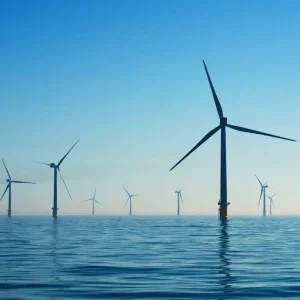Stadtwerke Kiel, Kraftanlagen München and GE are building what is said to be the most flexible large-scale power plant in Germany.
The main supplier is GE, which will provide 20 Jenbacher J920 Flextra gas engines, with a combined output of 190 MWe, to the general contractor Kraftanlagen München and the municipal utility Stadtwerke Kiel. The plant is a cogeneration unit, supplying up to 192 MW of heat to the local district heating system, and will include an electrode boiler to hold up the heat supply when electricity demand falls and when possible buy electricity at times when prices are low.
The Jenbacher unit is GE’s most powerful gas engine, and this order is to date the largest for the GE production line in Jenbach, Austria. The new plant will replace the existing coal-fired community power plant. As a nationally unique project, the new plant already is considered a model, setting, says GE, new standards with respect to flexibility, efficiency and environmental sustainability.
At full heat utilisation the thermal efficiency of the GE equipment is greater than 90%, and its electrical efficiency is 45%. The marketing of balancing energy and the integration of an electrode boiler (power to heat) for use during periods of low electricity prices is said to provide an extremely flexible and economical solution. This ensures not only the regional supply, but also guarantees operational cost-effectiveness. Compared with the previous coal-fired power plant, carbon dioxide emissions are reduced from 1.8 million tons to approx. 540 000 tons.
"Cogeneration systems as distributed and load-oriented applications form the ideal bridge to the energy system of the future, allowing us security in energy supply, the highest level of efficiency and therefore minimal primary energy consumption" commented Oliver Klitzke, executive operations GE Germany.
The greatest possible flexibility was a primary requirement of the new Stadtwerke Kiel plant. Due to the high proportion of wind-generated electricity in the regional grid, the power plant has to be able to feed full power into the local electrical grid within a short period in order to offset the volatility of the wind level, thus ensuring stability of the grid. The Jenbacher J920 gas engines can optimally compensate for these fluctuations. Their full capacity can be called up in just a few minutes.
The order from Stadtwerke Kiel is divided into two phases. The initial project involves the planning and construction of the pump house to connect to the district heating system, the electrode boiler and heat storage as well as scheduling and obtaining operating approval for the entire system, including gas engines. The second phase of the project, including construction of the gas engine power plant, is scheduled to be underway starting in May 2016.






